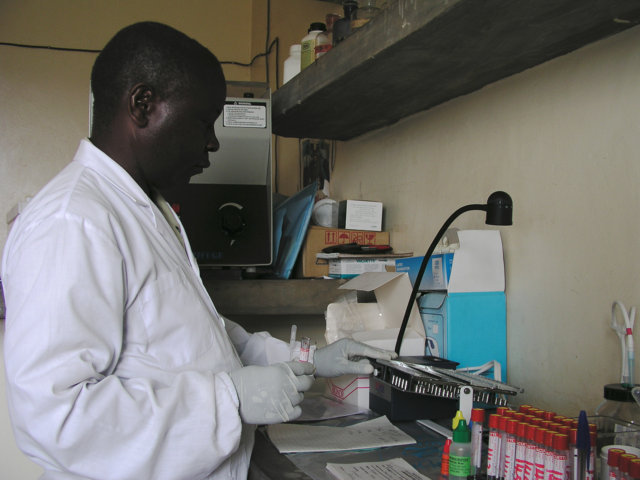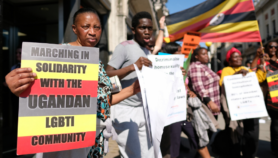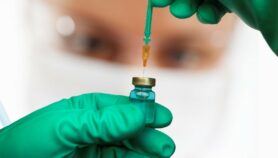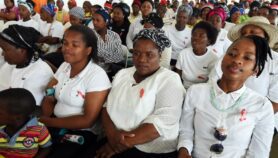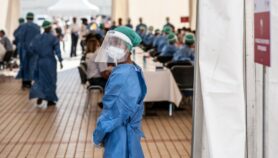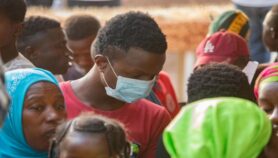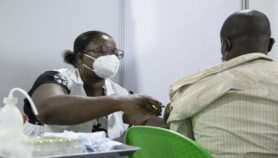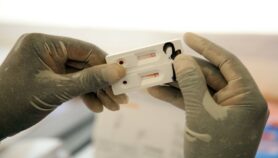By: Esther Nakkazi
Send to a friend
The details you provide on this page will not be used to send unsolicited email, and will not be sold to a 3rd party. See privacy policy.
Uganda’s annulled anti-gay law seems to impact HIV research involving high risk populations, Esther Nakkazi writes.
Research to determine new HIV infections in high-risk populations is touted by experts as difficult, thus making researchers rely on mathematical models to provide estimates.
In Uganda, Makerere University Walter Reed Project (MUWRP) researchers recruited 300 female, commercial sex workers between 2009 and 2013 to help determine new cases of HIV infections, among others, says Hannah Kibuuka, the study’s principal investigator and the director of MUWRP.
But as the study progressed, the researchers discovered a very low incidence among participants.
The findings motivated Kibuuka and her team to add another high-risk population — men who have sex with men (MSM).
“It was not a government order. It was for the safety of MUWRP staff, research subjects and because of the unconducive environment.”
Nelson Sewankambo, Makerere University College of Health Sciences.
Doubtful that MSM even existed in Uganda or that they could even find any volunteers to participate, the researchers were shocked that they were able to recruit 100 HIV-negative MSM within less than a year out of the 400 required.
But Uganda’s anti-homosexuality law, which came into force in February 2014 and was nullified in August this year, has had negative effects on the study, thus showing the influence of politics on research.
Why the MSM study
The study which involved MUWRP, a non-profit partnership between Makerere University and the US Military HIV Research Program, was part of a wider one also taking place in Kenya, Tanzania and Thailand.
The study was seeking to define the risk behaviour, prevalence and incidence as well as the retention of a high-risk population, says Kibuuka.
Kibuuka adds that the study was also to explore how the body and anti-retroviral drugs manage to control the virus. She said it is thought that if patients are given anti-retroviral therapy early, they may be able to control HIV because the virus’ reservoirs are not yet established.
Men who have sex are an even bigger danger because most of them also have sex with women and they could be married, especially in a hostile environment such as Uganda, Kibuuka explains.
According to the Uganda AIDS Commission, the country’s HIV incidence was 140,000 by 2013 and it is the only country in East Africa reporting recent increases in new cases of HIV.
Uganda’s HIV incidence or new infections a year can be reduced if stakeholders focused more on most-at-risk populations for prevention, says Joseph Matovu, a researcher with the Makerere University School of Public Health.
“If they did, at least two million infections could be stopped by 2025,” Matovu explains, adding that the country’s HIV incidence could be reduced by 77 per cent by using interventions that target such populations.
Who suspended MSM research?
In April this year, the organisations suspended research on MSM at the MUWRP research site for the safety of the researchers and the MSM.
Police came around MUWRP premises in April and claimed the institution was recruiting and training young men who have sex with men under the pretext of doing research on HIV vaccines, says Kibuuka.
But whether it was the government that led to suspension of the study remains the subject of interpretation from different perspectives.
“As soon as we get approval for the fisherfolk study, it will start off-site. I hate saying never. [The MSM study] can [bounce back] as long as the environment is conducive.”
Salim Wakabi, Makerere University Walter Reed Project (MUWRP)
Nelson Sewankambo, the principal of Makerere University College of Health Sciences, and a board member of MUWRP, says the MSM study had to be stopped because the researchers felt the need to do so.
“It was not a government order,” says Sewankambo. “It was for the safety of MUWRP staff, research subjects and because of the unconducive environment”.
Scientists in Uganda say that for the limited time when the anti-homosexuality law was operational, not many research activities were affected, save for probably clinical care for the MSM.
However, in a wider context, the suspension of the MSM study placed the spotlight on President Yoweri Museveni’s government, which has been previously commended in HIV prevention efforts.
The annulled law had increased the punishment for same sex acts between consenting adults to life in prison and criminalised the “promotion” of homosexuality and “aiding and abetting” of homosexuality with seven years’ imprisonment and hefty fines.
Salim Wakabi, a researcher with MUWRP, says although the study involving MSM was suspended, those who got infected during the study continue to get treatment and care off-site, for safety reasons.
This could have been the first study to establish the HIV incidence among MSM and commercial sex workers in Uganda, who are among the drivers of the HIV epidemic, Wakabi adds.
Marissa Mika, a doctoral candidate at the US-based University Pennsylvania, who is studying history of global health, says what happened to the MUWRP study shows the influence of politics on research.
Wakabi tells SciDev.Net: “Science was distorted. Scientists lost out on answering the research questions pertaining to this study. The data and samples collected may never be used.”
So what next?
The research will now be conducted among fisherfolk such as fishermen and fishmongers, another high-risk population, says Wakabi.
The HIV prevalence of fisherfolk in Uganda is 28 per cent compared to the national average of 7.2 per cent, Wakabi adds.
“As soon as we get approval for the fisherfolk study, it will start off-site,” assures Wakabi but he is not certain if the MSM study will ever bounce back. “I hate saying never. [The MSM study] can [bounce back] as long as the environment is conducive.”
The annulled law is now back in Uganda’s parliament as a bill in slightly revised form, with some parliamentarians promising that it would be passed into law as a Christmas gift before the end of the year, according to media reports. [1, 2]
Meanwhile research among MSM may never be known.
This article has been produced by SciDev.Net's Sub-Saharan Africa desk.
References
[1] Elias Biryabarema Uganda's new anti-gay law to pass by Christmas, lawmakers say (Reuters, 21 November 2014)
[2] Mikkel Danielsen and Isaac Imaka New anti-gay bill in advanced stages (The Daily Monitor, 20 November 2014)


